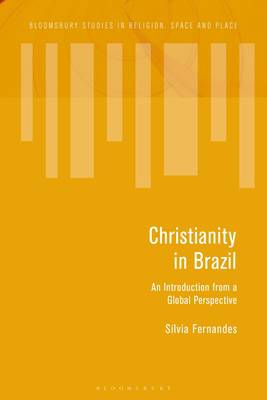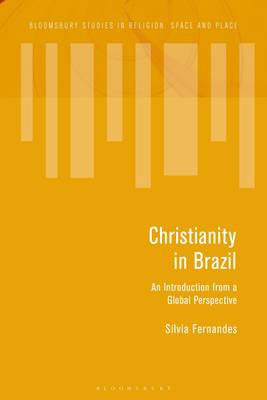
- Afhalen na 1 uur in een winkel met voorraad
- Gratis thuislevering in België vanaf € 30
- Ruim aanbod met 7 miljoen producten
- Afhalen na 1 uur in een winkel met voorraad
- Gratis thuislevering in België vanaf € 30
- Ruim aanbod met 7 miljoen producten
Zoeken
€ 67,95
+ 135 punten
Omschrijving
This book offers a novel approach to considering Brazilian Christianity's interplay with global processes from its inception to the present day. It adopts a multi-scalar approach to Brazilian Christianity, linking local grassroots practices and beliefs with processes at the various spatio-temporal levels. These include regional (rural-urban diversification), national (secularization, the radical pluralization of the Christian field, and intensified detraditionalization and retraditionalization) and transnational.
Sílvia Fernandes also identifies longue durée dynamics that connect colonial Christianity with current events, including the rise, crisis, and resurgence of Progressive Catholicism, and the election of right-wing populist Jair Bolsonaro with support from a sizable number of Evangelical Protestants and Charismatic Catholics, as well as "traditionalist" Catholics.
This book demonstrates that as Christianity enters its third millennium, it is increasingly shaped by churches and movements based in the "Global South" that have transnational and diasporic reach through the circulation of migrants, religious entrepreneurs, pilgrims, and tourists, as well as by the expert use of electronic media.
Sílvia Fernandes also identifies longue durée dynamics that connect colonial Christianity with current events, including the rise, crisis, and resurgence of Progressive Catholicism, and the election of right-wing populist Jair Bolsonaro with support from a sizable number of Evangelical Protestants and Charismatic Catholics, as well as "traditionalist" Catholics.
This book demonstrates that as Christianity enters its third millennium, it is increasingly shaped by churches and movements based in the "Global South" that have transnational and diasporic reach through the circulation of migrants, religious entrepreneurs, pilgrims, and tourists, as well as by the expert use of electronic media.
Specificaties
Betrokkenen
- Auteur(s):
- Uitgeverij:
Inhoud
- Aantal bladzijden:
- 256
- Taal:
- Engels
- Reeks:
Eigenschappen
- Productcode (EAN):
- 9781350204997
- Verschijningsdatum:
- 23/03/2023
- Uitvoering:
- Paperback
- Formaat:
- Trade paperback (VS)
- Afmetingen:
- 156 mm x 234 mm
- Gewicht:
- 358 g

Alleen bij Standaard Boekhandel
+ 135 punten op je klantenkaart van Standaard Boekhandel
Beoordelingen
We publiceren alleen reviews die voldoen aan de voorwaarden voor reviews. Bekijk onze voorwaarden voor reviews.







